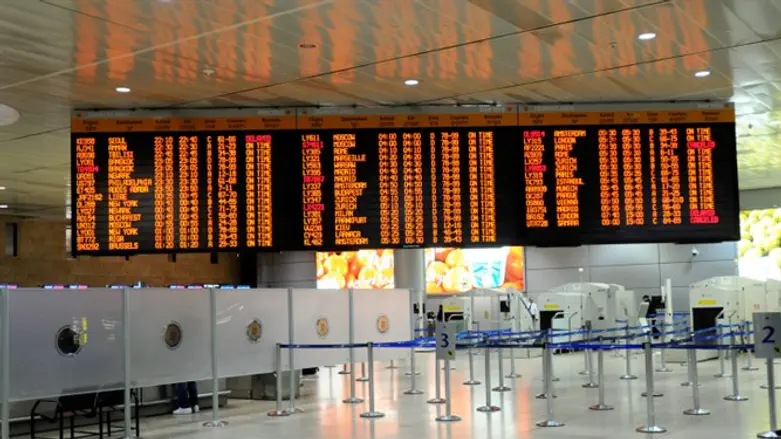
Belgium has launched new security measures at Brussels Airport after the suicide bombings there in March, taking inspiration from controls at the Ben Gurion Airport in Israel, Reuters reported on Tuesday.
Islamist suicide bombers killed 16 people and injured over 150 in the departure hall of the Zaventem Airport on March 22. The bombings were part of a coordinated assault on the Belgian capital's transport system.
Since then, reported Reuters, the airport and Belgian government authorities have been working closely on a new security concept.
As part of the project, Belgium’s Deputy Prime Minister and Security Minister Jan Jambon traveled to Israel this summer to view the security systems in place at Ben Gurion Airport outside Tel Aviv.
At Ben Gurion, cars are stopped at a checkpoint and given a once-over by heavily armed guards and cameras that read license plates. People deemed suspicious are pulled over for further questioning and possibly full searches. Largely unnoticeable monitoring continues all the way to the terminal.
Jambon was impressed especially by how some of the measures were non-intrusive for passengers. "There, security measures are present but not visible all the time," he said, according to Reuters.
As Belgium applies the lessons learned in Israel, the temporary tents outside Brussels airport that were used for passenger checks in the wake of the bomb attacks have been removed and now police officers newly trained in behavioral detection stand guard at entranceways, looking for signs of suspicious conduct among arriving travelers.
"This is not profiling on the basis of age, skin color or gender, it's about detecting behavior," Jambon said at the ACI Europe airport security conference in Brussels, according to Reuters.
Facial recognition technologies are part of the new security system. The number of cameras at the airport has been increased to 1,250, including ones to scan car number plates as they enter the airport perimeter.
The airport is also looking at other measures, such as remote bag drops to improve security, while staff have been encouraged to report any unusual activities, the report said.
Following the attacks in Brussels this past March, there were reports that one of the attackers, Najim Laachraoui, had in fact worked at the airport for five years until 2012.
Previously reports said Laachraoui worked as a janitor at the European Parliament for one month in 2009 and one month in 2010.
Belgian prosecutors believe Laachraoui went to Syria in February of 2013 where he joined the Islamic State (ISIS), which claimed responsibility for the Brussels attacks.